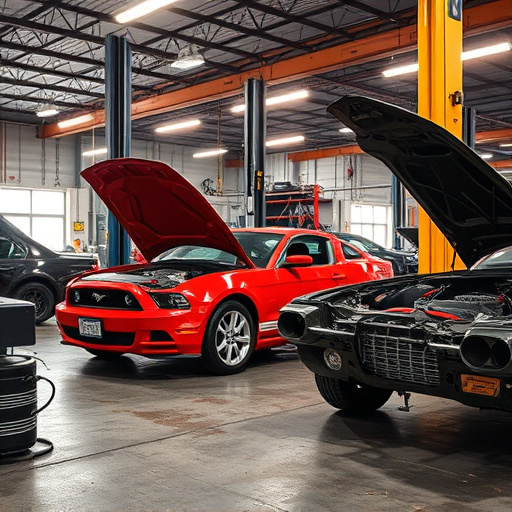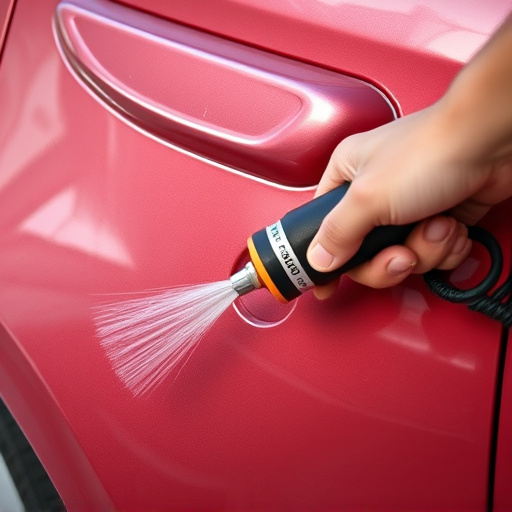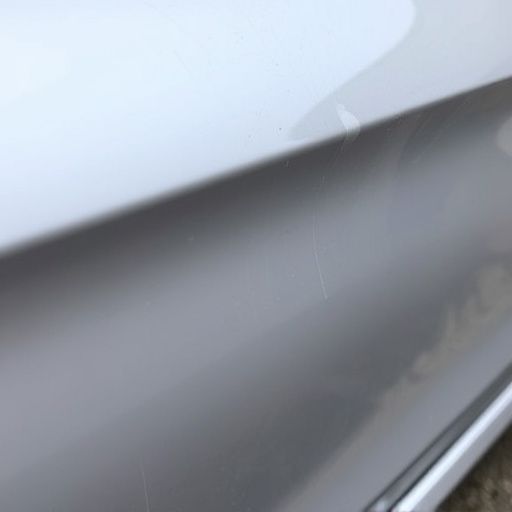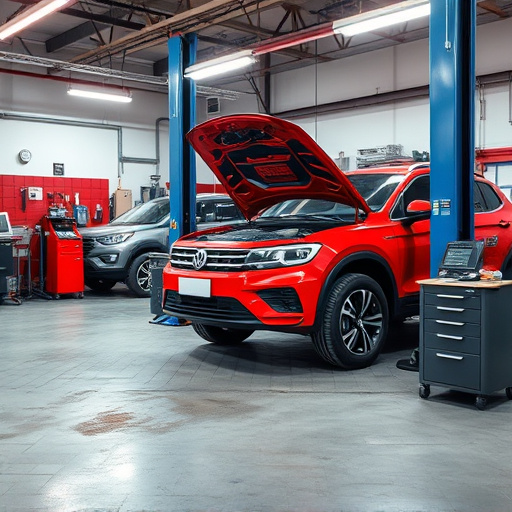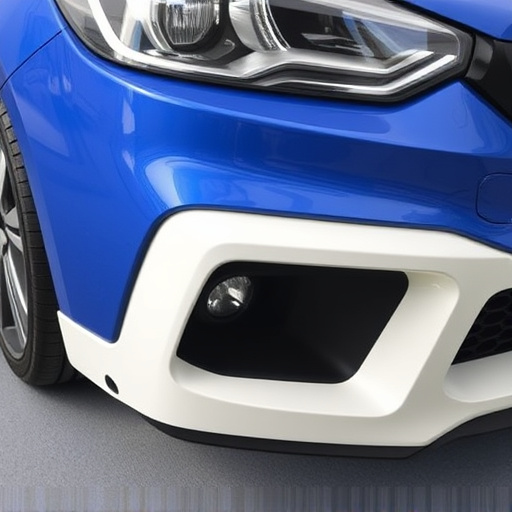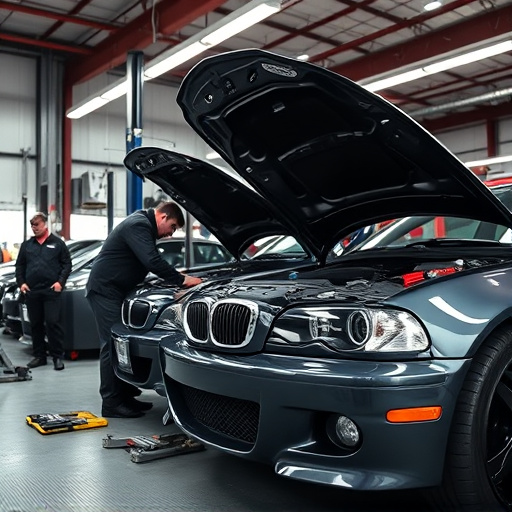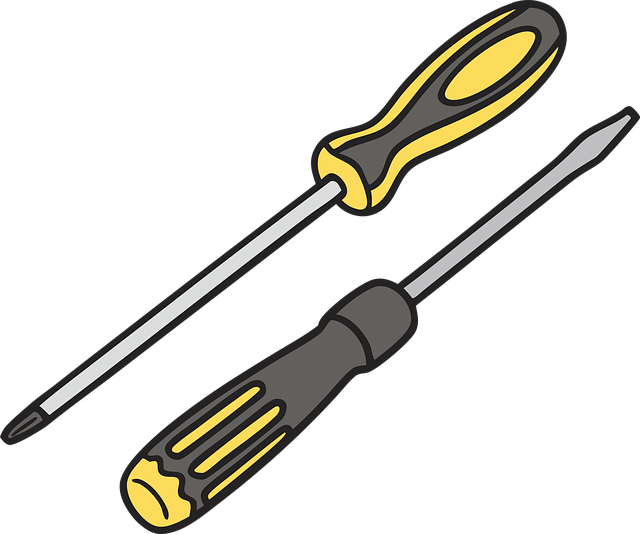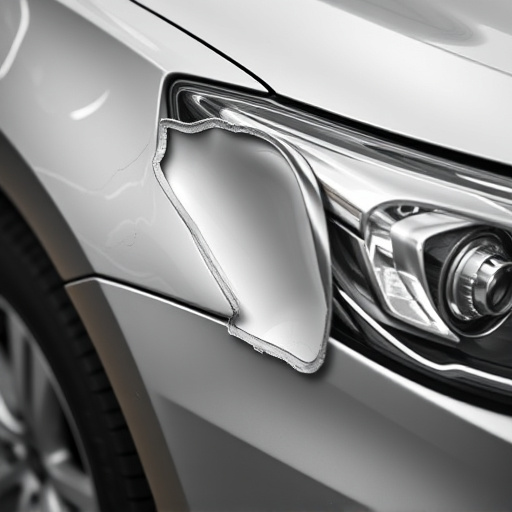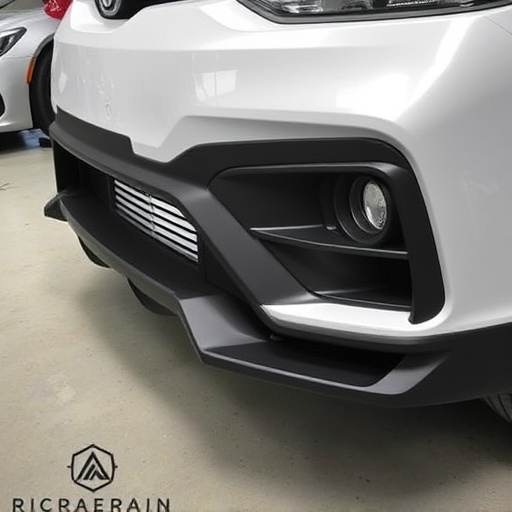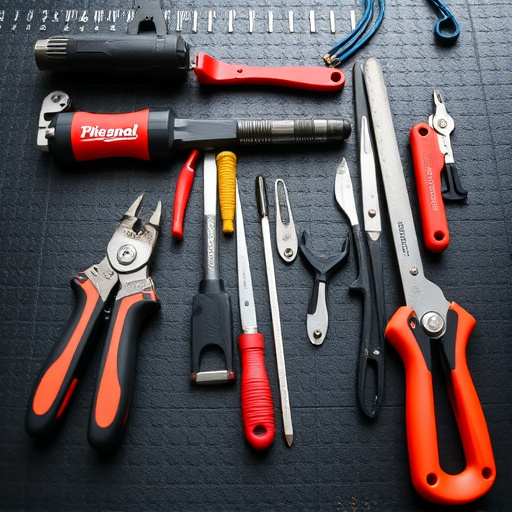Mercedes has transformed its factory welding methods by adopting advanced robotics technology, moving away from manual practices. This innovation brings unparalleled precision and efficiency, ensuring every vehicle component meets high-quality standards. Robotic precision guarantees uniform strength and positioning, enhancing vehicle safety and reliability in minor collisions. By automating manufacturing processes, Mercedes maintains consistent quality control while streamlining production to meet growing demand.
Mercedes-Benz, renowned for its automotive excellence, has revolutionized its factory welding methods through advanced robotics and precision technology. This transformation ensures consistent quality and streamlines production efficiency. In this article, we explore how these cutting-edge innovations are reshaping the landscape of vehicle manufacturing. From advanced robotics to precise automation, Mercedes’ approach sets a new standard in the industry, offering insights into the future of car production with enhanced accuracy and speed.
- Advanced Robotics: Mercedes' Welding Revolution
- Precision Technology: Unlocking Consistent Quality
- Automated Processes: Streamlining Production Efficiency
Advanced Robotics: Mercedes' Welding Revolution

Mercedes has led the automotive industry in revolutionizing factory welding methods with advanced robotics technology. This shift marks a significant departure from traditional manual welding practices, bringing unprecedented precision and efficiency to the manufacturing floor. With robotic arms capable of performing complex welds with unparalleled accuracy, Mercedes ensures that each vehicle component meets the highest standards of quality and consistency.
The integration of robotic precision in Mercedes factory welding methods goes beyond mere efficiency. It enables intricate weld patterns and seamless joins, ensuring structural integrity and long-lasting durability. This technology also facilitates faster production times, allowing for quicker turnaround on car body restoration and vehicle collision repair processes. As a result, Mercedes not only sets the bar for automotive manufacturing but also contributes to safer and more reliable vehicles in the event of a fender bender or other minor vehicle collisions.
Precision Technology: Unlocking Consistent Quality
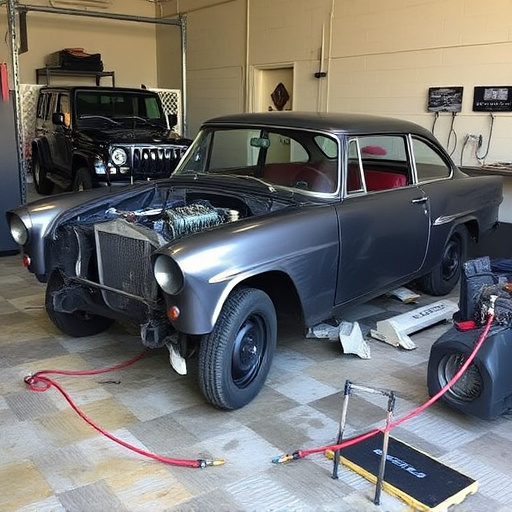
In the realm of automotive manufacturing, Mercedes factory welding methods have always been synonymous with precision and quality. As such, the adoption of robotic precision technology has unlocked new levels of consistency in their production processes. This advanced tech ensures that each weld is executed with meticulous accuracy, eliminating variability and ensuring every vehicle meets the brand’s exacting standards.
The integration of robotics into Mercedes factory welding methods goes beyond mere efficiency; it guarantees a uniform quality that’s unparalleled in the industry. Whether dealing with intricate body panels or complex structural components, robotic precision technology ensures that each weld is consistent, strong, and precisely positioned. This not only facilitates smoother assembly lines but also results in vehicles that are safer, more reliable, and better performing—a far cry from the days of manual welding where human error could introduce flaws into the final product, requiring processes like auto glass replacement or dent repair to fix issues later on.
Automated Processes: Streamlining Production Efficiency
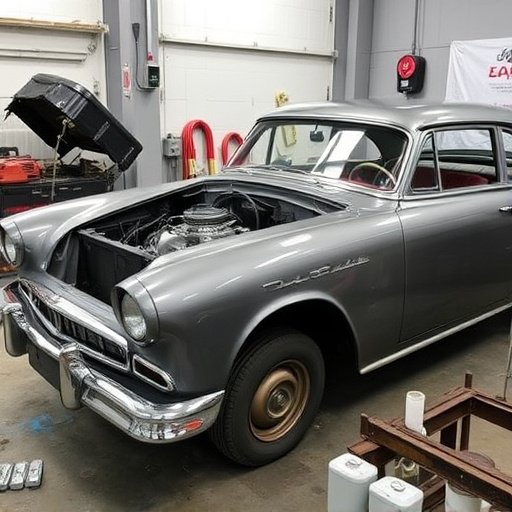
In the heart of Mercedes’ manufacturing process lies a cornerstone of precision and efficiency: automated welding methods. These technologies are transforming car production, ensuring each vehicle meets the brand’s impeccable standards. By implementing robotic precision technology, Mercedes achieves seamless integration of components, resulting in robust structures that rival the strength of their traditional manual welds. This shift to automation isn’t just about speed; it’s about consistency and quality control. Every weld is executed with meticulous accuracy, minimizing errors that could lead to car damage repair or necessitate costly autobody repairs.
The streamlined production process benefits from automated processes, which eliminate the variability inherent in human work. Robotic arms, guided by sophisticated algorithms, perform welding tasks with a level of consistency unattainable by manual labor. This precision is crucial for intricate designs and complex car bodywork components. As a result, Mercedes can maintain high-quality standards while meeting the ever-increasing demand for its vehicles.
Mercedes has revolutionized its factory welding methods through advanced robotics and precision technology, consistently delivering high-quality vehicles. By automating processes, the brand streamlines production efficiency, setting a new standard in the automotive industry for both speed and accuracy. These cutting-edge approaches ensure that Mercedes’ commitment to excellence continues to define its manufacturing process, utilizing its robotic precision technology as a key differentiator in the market.
